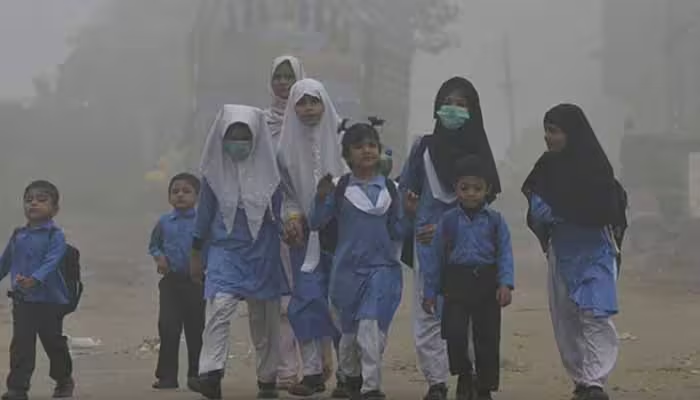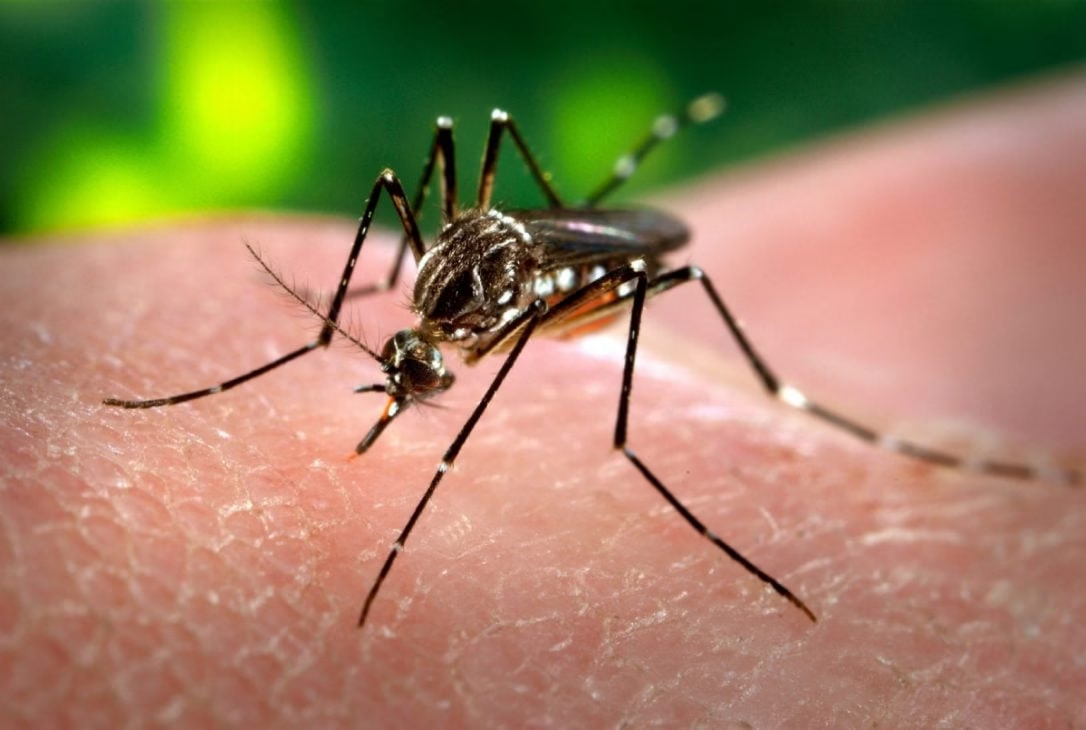In a decisive move to protect public health, the Punjab government has ordered the closure of all public and private schools across the province, effective immediately and extending until November 17. This emergency measure is a response to the alarming increase in smog and air pollution, which has severely impacted air quality and led to a rise in health issues such as respiratory, eye, and throat conditions. The notification, issued by the Punjab Education Department, mandates that all educational institutions transition to online sessions during this period.
Rising Smog and Pollution Levels Trigger Action
The decision to suspend physical classes comes as Punjab faces an unprecedented surge in air pollution levels. Cities across the province, including Lahore, Faisalabad, Gujranwala, Multan, Rawalpindi, DG Khan, Sargodha, and Sahiwal, have been particularly affected. Initially, the closure was limited to these eight districts; however, as air quality deteriorated further, the government extended the closure to all districts in Punjab to ensure the safety of students, teachers, and school staff.
According to environmental experts, the combination of seasonal changes, industrial emissions, and vehicular pollution has caused the Air Quality Index (AQI) in many areas to reach hazardous levels. Schools, where children are especially vulnerable, are seen as high-risk environments under these conditions. In response, the government has implemented a province-wide closure to curb exposure to harmful pollutants.
Health Risks Behind the School Closures
The health impact of the current smog levels is a major concern. Respiratory issues, particularly in young children, are exacerbated by exposure to smog, which contains fine particulate matter that can easily penetrate deep into the lungs. Health officials have reported a rise in complaints of asthma, bronchitis, and other respiratory ailments. Eye and throat irritations have also become common, further underscoring the need for immediate preventive action.
Dr. Raza Ali, a pulmonologist based in Lahore, explained that children and the elderly are most susceptible to air pollution-related health risks. “The particles in smog are tiny enough to bypass the body’s natural defenses,” Dr. Ali noted, “making it crucial to limit exposure, especially for young children whose respiratory systems are still developing.”
Transitioning to Online Learning
In line with the closure directive, the government has encouraged schools, both private and public, to shift to online learning. Education authorities have instructed all government-run educational institutions and tuition centers to implement virtual classes, helping students maintain their studies despite the shutdown.
Punjab’s Education Minister Rana Sikandar Hayat acknowledged the potential educational disruption caused by the decision. “We understand the impact this may have on learning,” Hayat said, “but protecting the health and safety of our children is our priority. This decision, though extreme, was essential to shield students from the adverse effects of air pollution.”
Addressing Challenges in Online Education
The sudden shift to online learning presents challenges for both educators and students. Many families in rural areas may face difficulties accessing the necessary technology, such as stable internet connections or devices. Furthermore, younger children often require hands-on guidance, which can be challenging to deliver in a virtual environment.
Recognizing these challenges, Minister Hayat emphasized that alternative solutions are being explored. The Punjab Education Department is considering options to ensure that students without reliable internet access or devices are not left behind. Authorities are working with educational experts to devise creative solutions that will keep students engaged and on track academically.
The government is also looking into providing digital resources and implementing online platforms that are user-friendly, especially for younger children who may not be accustomed to virtual classrooms. The Education Department is committed to minimizing any learning gaps created by this disruption.
Impact on Families and Communities
The school closures have had a ripple effect on families and communities across Punjab. For working parents, arranging childcare or supervision during this period can be challenging, particularly when they must also ensure their children are able to participate in online learning. This situation has further highlighted the need for reliable digital infrastructure and affordable internet access to support online education on a large scale.
Parents, however, largely support the decision, expressing relief that their children’s health is being prioritized. “It’s a hard time for everyone,” said Mariam Ali, a parent in Lahore, “but I’m glad the government is taking the necessary steps to keep our children safe. We can manage online learning for a while if it means keeping them healthy.”
Future Plans and Government Measures
The Punjab government has indicated that it will closely monitor the air quality in the coming weeks and make adjustments as needed. The smog crisis is a stark reminder of the urgent need for sustainable environmental policies to combat pollution. The government is reportedly considering long-term measures to reduce emissions, including stricter regulations on industries and incentivizing the use of clean energy sources.
In the meantime, the Education Department is working on strategies to support students academically once schools reopen. Additional resources, supplementary lessons, or review sessions may be introduced to help students catch up on any material missed during the closure.
The decision to close schools across Punjab until November 17 is a necessary response to an immediate public health crisis. With air quality at dangerous levels, the government’s priority is to protect its youngest and most vulnerable citizens. By implementing online learning, authorities hope to minimize academic disruption while ensuring the safety of students.
As the province grapples with the impact of smog and pollution, this closure serves as a call to action for long-term environmental solutions. In the short term, however, both the government and families across Punjab remain committed to navigating this challenge together, prioritizing health while striving to keep students engaged and prepared for future academic success.



